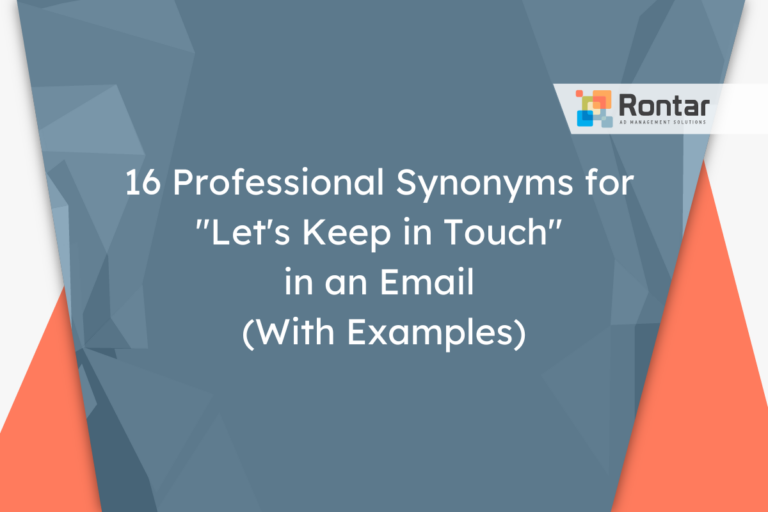10 Other Ways to Say “Please Let Me Know if You Are Interested”

Communicating effectively in a professional setting often involves asking others if they’re interested in taking part in a project or idea.
This article provides 10 alternative phrases to “Please Let Me Know if You Are Interested” to help you vary your language and engage more effectively with colleagues and partners. Each alternative is explored in detail, providing insights into when and how to use them to enhance your communication.
Is It Professional to Say “Please Let Me Know if You Are Interested”?
Asking someone to “let me know if you are interested” can be seen as professional, formal or informal, and polite. This phrase is versatile enough to be used in various settings, from casual emails to more formal business proposals. It suggests that you’re providing an option for the recipient to express their interest at their discretion, which is courteous.
We recommend using this phrase when you’re offering a proposal, an invitation, or information that requires a response indicating interest or disinterest. It’s appropriate with all types of recipients — from colleagues and clients to potential collaborators and friends — and across various mediums, including emails, letters, and direct messages.
Email example:
Greetings Mark,
I'm reaching out to share information about our new project, which I believe aligns well with your interests and expertise. We are currently looking for contributors who can bring value and innovation to our team.
Please let me know if you are interested in learning more about this opportunity and how you can be a part of it.
Best regards,
Emily
Pros:
- Shows respect for the recipient’s decision-making process.
- Keeps the conversation open-ended and non-pressuring.
- It is versatile and can be used in multiple contexts.
Cons:
- May be too vague for some situations, lacking a clear call-to-action.
- Could be interpreted as overly passive in more formal settings.
- Some recipients might prefer more directness.
While this phrase is quite effective in its own right, someone might consider using an alternative to tailor their communication more closely to the tone and formality of the situation at hand. Using synonyms or alternatives can help to specify the action you desire from the recipient or to align with the expected norms of communication within certain industries or groups.
10 Other Ways to Say “Please Let Me Know if You Are Interested”
Here are 10 common alternatives to the phrase “Let Me Know if You Are Interested” that can be used in a professional email within a workplace environment:
- I’d appreciate your feedback.
- Do you want to proceed with this?
- Your thoughts?
- Are you on board with this idea?
- Would this be of interest to you?
- Could you confirm your interest?
- Are we good to go ahead?
- Would you be eager to join us?
- May I assume you’re interested?
- Are you inclined to participate?
1. I’d appreciate your feedback
This alternative is somewhat more formal than the original phrase and implies that you’re seeking more than just an expression of interest — you’re asking for an opinion as well. It’s more specific and direct, making it highly professional and polite. It’s perfect for situations where the recipient’s insight is valuable to you, encouraging more in-depth communication.
This is ideally used with colleagues or stakeholders when discussing projects or proposals. It suits emails and meetings where detailed feedback can lead to improvements or when making decisions.
Example:
Dear Lisa,
We've drafted the preliminary plans for the upcoming marketing campaign.
I’d appreciate your feedback on the proposed strategies and any insights you might have.
Kind regards,
Tom
2. Do you want to proceed with this?
This alternative is direct and straightforward, suggesting immediate action rather than just interest. It’s informal but still professional, fitting for communications where a clear decision is needed promptly.
Use this with team members or partners when a project is ready to move forward, and you need a simple yes or no answer. It works well in emails or chat messages where the context is already understood, and brevity is valued.
Email sample:
Hello Jason, Following our discussion, we've adjusted the project timeline as you suggested. Do you want to proceed with this? Best, Ava
3. Your thoughts?
This alternative is highly informal and should be used in contexts where familiarity and openness are present. It invites a broad range of feedback, not just a binary expression of interest. It’s very informal yet remains polite and engaging.
It’s most suitable for internal communications with colleagues or informal discussions with familiar clients. Email is the perfect channel for this, especially when looking for input on ideas or informal proposals.
Here’s an example:
Hi Megan, I've attached the latest design revisions for your review. Your thoughts? Cheers, Derek
4. Are you on board with this idea?
This alternative is both direct and engages the recipient on a more personal level, asking for their agreement or support in addition to their interest. It’s somewhat informal but can be very effective in getting a clear response in a professional setting.
This phrase is best when you’re relatively familiar with the recipient and need their express commitment or enthusiasm for a proposal. It’s suited for emails and direct messages, especially within project teams.
Email example:
Hi Theo, We're considering extending our work hours for the next release cycle. Are you on board with this idea? Kindly, Nina
5. Would this be of interest to you?
This alternative is more formal and allows the recipient to consider their interest level without needing an immediate decision. It’s subtly professional, courteous, and gives room for the recipient to ask for more information before committing.
It’s particularly useful in initial contact emails, newsletters, or messages to potential collaborators or clients. This phrase fits best in professional contexts where you’re not familiar with the recipient’s preferences.
Example:
Dear Colin, We recently launched a new service that aligns with your business needs. Would this be of interest to you? Best regards, Fiona
6. Could you confirm your interest?
This alternative is direct and assumes some level of prior engagement or understanding between you and the recipient. It blends formality with a call to action, making it professional and suitable for follow-up messages or after an initial discussion has taken place.
This phrase works best in scenarios where you’ve already discussed the topic and are seeking confirmation to proceed. It’s ideal for use in emails with clients, stakeholders, or team members where clarity and commitment are needed.
Here’s an example:
Dear Helen, Following our recent conversation about the quarterly report, I've made the necessary revisions. Could you confirm your interest? in finalizing this version for presentation. Warmest regards, George
7. Are we good to go ahead?
This alternative implies readiness to move forward and seeks approval in an informal, collegial manner. It’s professional but implies that the decision to proceed is almost assumed, seeking just final confirmation.
It’s best suited for conversations with teammates or colleagues, especially in contexts where the project or decision has already been extensively discussed. Emails or quick chats are the ideal mediums for this phrase.
Email sample:
Hey Zoe, We've all agreed on the new project timeline, and everything is now aligned with our goals. Are we good to go ahead? Best, Liam
8. Would you be eager to join us?
This alternative is more enthusiastic and informal, inviting the recipient to participate with a sense of excitement. It’s polite and somewhat professional, suited for inviting a colleague to a project or initiative where their passion and interest are key.
This phrase is excellent for use in team emails or messages to potential collaborators who you believe will be genuinely excited about the opportunity. It conveys enthusiasm and a team spirit.
Here’s an example:
Hi Farah, We're starting a new initiative to boost our community engagement next quarter. Would you be eager to join us? Cheers, Oliver
9. May I assume you’re interested?
This alternative is straightforward and a bit informal, suggesting that you expect a positive response but still seek confirmation. It’s a professional way to confirm interest without assuming too much, and maintaining politeness.
Suitable for when you’ve had a positive initial discussion or when the recipient has shown some enthusiasm in the past. Great for emails focusing on project participation or event attendance, where a subtle nudge towards confirmation is needed.
Example:
Dear Julian,
After our exciting discussion yesterday about the upcoming seminar,
May I assume you’re interested in attending?
Warm regards,
Samantha
10. Are you inclined to participate?
This wording is polite and formal, inviting the recipient to express their willingness to be part of something without pressure. It’s professional and respectful, ideal for communicating with higher-ups, new contacts, or potential sponsors.
This phrase is best used in formal invitations or proposals where the recipient’s discretion and decision-making are highly valued. It fits formal communications, such as official emails or letters, especially when inviting participation in projects, panels, or events.
Email sample:
Hello Dr. Reynolds, We are organizing a panel discussion on renewable energy solutions, which you might find aligning with your research interests. Are you inclined to participate? Sincerely, Nadia
Final Thoughts
Choosing the right words is key to effective professional communication. The alternatives provided in this article offer a range of options to express interest in a more engaging and precise way. Each option suits different situations and recipient preferences, ensuring you can adapt your message appropriately. By using these alternatives, you can improve your emails and messages, making them more likely to receive a positive response.






